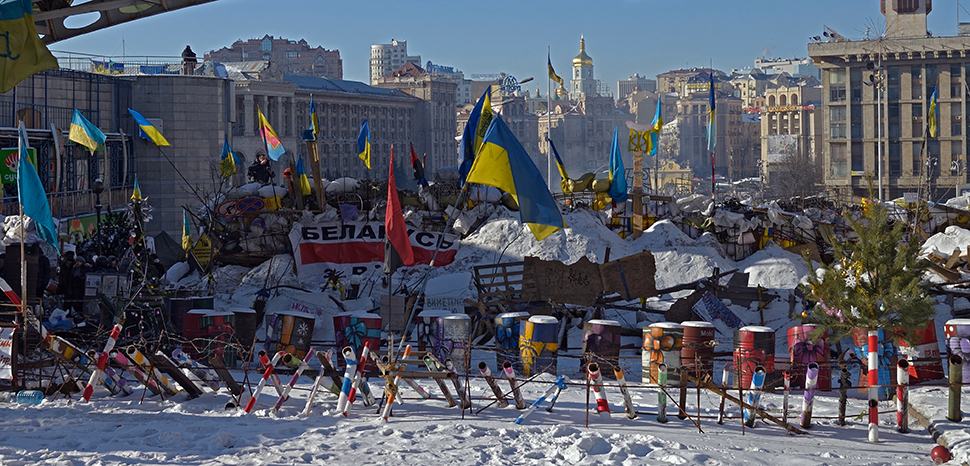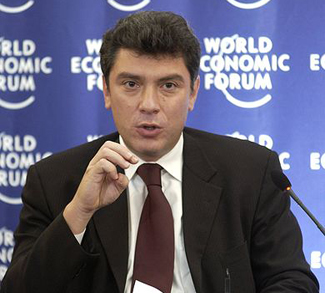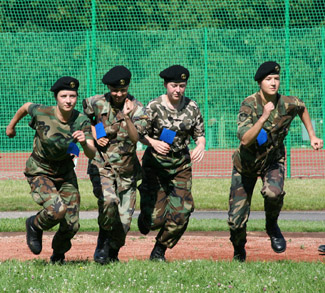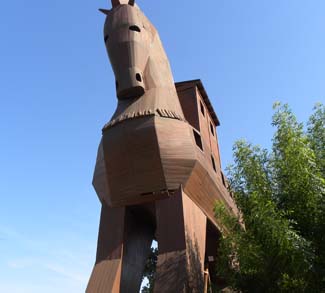This November, Ukraine marks the eighth anniversary of the beginning of the Euromaidan Revolution, also known as the Revolution of Dignity – the third revolution in this former Soviet country since the fall of the Berlin Wall and the collapse of Communism. It started as mass protests provoked by the sudden and unexpected decision by the government of President Viktor Yanukovich on 21st November 2013 not to sign an Association Agreement between Ukraine and the European Union. The government argued that the decision was purely economic, and that the Agreement on-offer needed to be improved. Such an explanation did not satisfy many Ukrainians as that did not seem to be true. As a matter of fact, teams from the Ukraine and EU had intensively and scrupulously worked on the Agreement for a few years, during which they had over forty rounds of negotiations.
Thus, the real reason for Yanukovich’s government refusing to sign the Agreement appeared to be a political one. Russia had constantly been expressing their disapproval as it saw the Agreement as a threat to Moscow’s geopolitical interests in its ‘backyard.’ Earlier in November 2013, President Yanukovich was summoned to the Kremlin, where he met with Russian President Putin. Upon his return, the government declared that it would not sign the Agreement with the EU. That decision prompted people to take to the streets. On the cold and rainy evening of 21st November 2013, about fifteen hundred civil society activists and opposition politicians gathered on the Maidan Nezalezhnosti (Independence Square) to protest the decision. Many Ukrainians felt that the government betrayed their aspirations toward Europe; thus, the movement was dubbed Euromaidan. On the following day, thousands of people protested in many cities across the country. In Kyiv, over one hundred thousand protesters took on streets, and tents were installed on the Maidan. People were demanding to change the decision and sign the long-expected agreement on the upcoming EU meeting in Vilnius on 29th November 2013. But these demands fell on deaf ears, and although president Yanukovich went to the EU meeting, he did not sign the document. As an old Ukrainian saying goes, “the train was gone”, and most of the protesters, although deeply disappointed, dismantled their camps on the Maidan and went home. Not all, however, left the square and a few hundred protesters, mainly young students from Kyiv universities decided to continue the protest and remained on the Maidan overnight. Then in the early hours of the 30th November at around 4 am, riot police “Berkut” suddenly and unprovokedly attacked them, severely beating and dispersing the students.
Many young people were seriously injured and had to be treated in hospitals. The news spread quickly, making people incredibly angry. By the early afternoon of the same day, tens of thousands of Ukrainians gathered in the centre of Kyiv demanding to punish those responsible for the police brutality. Still, their demands did not get any meaningful reaction from the authorities. Perhaps these unprovoked brutalities against the students were the ‘last straw’ in a long chain of events reflecting how the regime was becoming more and more oppressive and corrupt, with deteriorating civil liberties and growing human rights abuses. Eventually all that prompted society to rebel against the authorities. Thus, a new stage of the mass protests began, this time against the Yanukovich regime itself and its mode of governance which within just a few years had substantially slid toward authoritarianism. Sweeping corruption such as state capture, clientelism and nepotism, though they predated the regime, all became strikingly evident under the presidency of Yanukovich. His clan, the so-called “Semya” (The Family), significantly expanded their influence and wealth in a very short period of time. Notably, the fast-growing level of corruption and slide toward authoritarianism was not wholly unexpected. Viktor Yanukovich, who in his youth was three times convicted for criminal offenses and who also belonged to a powerful Donetsk oligarchic clan, once assuming the presidency, immediately started to use the office for his personal gains.
On the 1st December, over a half a million people protested on the Maidan, and they started to organize themselves. The Coordination Centre of National Resistance was formed by the opposition leaders of the parliament and civil society activists. The tent camp on the square was reinstalled, several buildings were occupied, and the self-defense groups responsible for the protection and maintaining order within the encampment were organized. They also started to build barricades.
Yet all the protesters’ demands fell on the deaf ears of the state authorities. Still worse, during the following three months, the regime tried to harshly suppress the uprising. Even so, it only had the opposite effect, as protests grew stronger in Kyiv and across the country.
The movement thus became a truly national anti-regime revolution. Millions of people who never before had participated in civic life volunteered for the campaign. For example, on the Maidan encampment alone, thousands of people were helping to build the barricades, were collecting warm clothes, blankets and alike; 22 professional chefs, with the help of 80 volunteers, cooked meals for the protesters every day. Media, IT, medical and many other groups of volunteers were established, the library and the art exhibition area were set up. Many initiatives in creative arts took place. Lecturer-volunteers of the Open University of Maidan Initiative lectured in humanities and economics. Many of Ukraine’s musicians and singers regularly performed for the protesters. The Automaidan, a large group of car-owner activists, became a mobile force of the Revolution, regularly holding impressive protesting rallies across the city and beyond. Many priests representing various Ukrainian churches strongly supported the movement and served masses for the protesters. A nearby Mikhailivskiy Cathedral housed the Maidan’s hospital, where dozens of volunteer doctors and nurses attended sick and injured protesters day and night. Women’s, youth and other civic groups took an active part in the movement. Thousands of businesses and millions of ordinary Ukrainians donated money to support the logistics of the uprising.
Remarkably, over twelve per cent of the country’s population participated in the protests. Protesters came from every walk of life, both male and female, young and old, Ukrainian and Russian speakers or bilingual, people of a different ethnic background, Ukrainian, Crimean Tartar, Jewish, Armenian, Belarusian, Polish, Russian, and others. Almost two-thirds of the participants had higher education, and more than half were not from Kyiv but the whole of Ukraine instead. Alcohol was banned completely on the Maidan, and many noted the unprecedented level of civility and the absence of any incidents of antisocial behavior on the side of the participants. The extraordinary three months of the protests and clashes eventually led to the runaway of Yanukovich and the regime change at the end of February 2014. It was the bitter victory for which over one hundred protesters paid their lives, and hundreds were injured. Tremendous determination, selflessness and courage combined with the mass character of the campaign and high level of self-organization resulted in the Euromaidan victory. Ukraine still has many problems such as corruption and an inefficient state. However, the Euromaidan marked the final breakaway from centuries-long dependency on autocratic Russia and also gave an impulse that eventually has put the country on the firm track toward Europe and further democratization.
The views expressed in this article are those of the authors alone and do not necessarily reflect those of Geopoliticalmonitor.com




